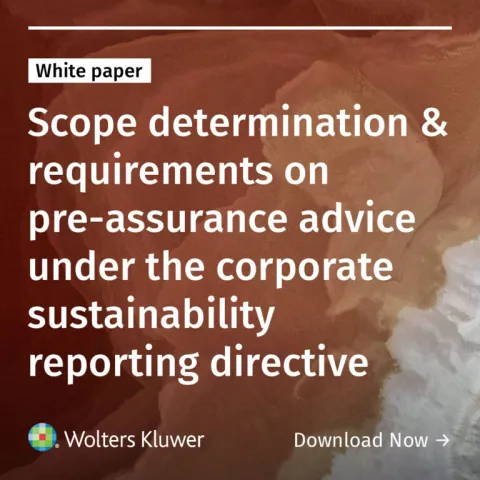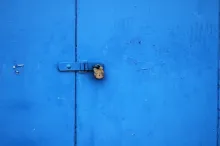Will the New Year bring the rule of law to the EPO?
December 29, 2021
According to article 1 of the European Patent Convention (EPC), “a system of law, common to Contracting States for the grant of patents for inventions is established by this Convention.”
So, at first glance, it would appear that the European Patent Organisation was meant to be an International Institution governed by the rule of law. In particular, by the text of the EPC and by the provisions of the Implementing Regulations which, according to article 164, form part of the EPC.
However, as is well known, over the years, the need to address practical matters has led the organs of the European Patent Organisation to use some instruments that have placed it at some distance from the rule of law.
One such instrument is the “Communications from the President of the European Patent Office (EPO). For example, on 13 May 1992, the President of the EPO, for the purpose of reducing the workload of the Spanish Patent Office, published a “Communication” “strongly encouraging” applicants, in the case of patents affected by Spain’s Reservation excluding the patentability of pharmaceutical products until 7 October 1992, to file a separate set of claims for Spain. Here we have an organ of the European Patent Organisation (the president of the EPO) prompting a result explicitly prohibited by article 118 of the EPC: the grant of a European patent with a text not identical for all Contracting States. Article 167 (Reservations) did not allow the EPC to deviate from that principle. What article 167 stated was that, if a European patent whose text had to be identical in all Contracting States (article 118) protected the chemical or pharmaceutical product as such, then that patent could be revoked or would have no effect in Spain. Readers will not find any article of the EPC stating that a European patent may have a non-identical text in the Contracting States that made a Reservation under article 167.
Another controversial instrument is the EPO Guidelines for Examination, which seek to serve as a guidance and a sort of 'toolkit' for Examiners. Fair enough. The problem is that, in practice, the Guidelines have introduced requirements for which sometimes it is difficult to find a legal basis in the text of the EPC. A recent example may be found in Decision T 1989/18 of 22 December 2021, where the Board of Appeal struggled to find a legal basis for the requirement for the description to be amended in line with the allowed claims (Guidelines for Examination, F-IV-4.4). In the end, it found none.
Taking into account that the EPO will be responsible for granting the forthcoming European patents with unitary effect, it is only natural to wonder whether, in view of this responsibility and the fact that these patents will be scrutinized by the Unified Patent Court, the organs of the European Patent Organisation will go the extra mile to ensure the utmost respect for the rule of law.
Perhaps the New Year, which the author wishes will be full of health, good luck and prosperity for our readers, will bring us the answer.
You may also like














Concerned observer
To answer the question that you posed: no, it will not. There are so many topics upon which the EPO's commitment to the rule of law is at best half-hearted and at worst non-existent. Whilst it is not possible to cover all of the topics in a single post, the (undermining of, and refusal to address problems with) independence of the Boards of Appeal deserves particular mention. The same is true for the EPO's treatment of its staff, where not even ILO-AT rulings finding breaches of fundamental rights have had any perceptible impact upon the EPO's management. In theory, it would have been reasonable to expect the EPO to ensure that its house is in order for 2022, so that any problems with the way it operates do not risk bringing down the unitary patent edifice (which is, of course, built upon the EPC). However, by ignoring its own (serious) problems, the EPO will be fully aligned with the strategy of the Participating Member States to the UPC Agreement ... who all seem to be intent upon turning a blind eye to other serious problems with the UPC (eg the lack of legal basis for relocating the London branch of the central division, or redistributing its cases to other branches). Of course, the above observations beg the question of whether, for pre- and post-grant matters for European patents, strict adherence to the rule of law is an ideal to which "stakeholders" will no longer aspire. I hope not, but I very much fear so.
The Convention Watchdog
The author’s allegation that Article 167 EPC (Reservations) did not allow the EPO to deviate from the principle of the unity of the application or patent in Art. 118 EPC appears as a petition principii. Art. 118 includes the specific proviso that the text of the application or patent shall be uniform for all designated Contracting States, unless the Convention provides otherwise. Such a deviating provision in the EPC was Article 167 (2) EPC 1973 allowing Contracting States to make reservations inter alia for chemical substances or pharmaceutical products. Thus, without different claim versions for different Contracting States, the applicant would have had the choice - to have a single set of claims without protection for the subject-matter excluded in the State having made the reservation; - to dispense with protection for the State having made the reservation by not designating it or to ignore the reservation; - to file two European applications, one for the State having made the reservation and the other one for all other States. That all these alternatives are not in the interest of providing appropriate protection for all fields of technology in efficient proceedings is self-explanatory. In particular, allowing different sets of claims in this situation seemed to restrict the effect of a reservation to the State having made the reservation thereby implementing the reservation in an appropriate and legitimate way. Thus, there may better examples for showing that the Rule of Law is not observed in EP-proceedings.
DXThomas
One decision is not a new line of reasoning which should lead to an amendment of the Guidelines or to a referral to the EBA! T 1898/18 is in flagrant contradiction with T 1808/06 which is the leading decision in the field. See also T 1399/17 which is also far from sharing the view expressed in T 1898/18! The majority of boards consider that the description has to be adapted to the claims in order to give the claims the required support. In view of Art 84 as it stands, T 1898/18 is manifestly incorrect. The board having decided T 1898/18 does not show the necessary respect for other boards which apply Art 84 as it should be done and do not mix clarity as such with support. When a proprietor is not present at an OP and a set of claims is allowable, a long lasting line of case law is to refuse the application or to revoke the patent in the absence of an adapted description. Some boards are a bit more lenient and remit to the ED/OD to adapt the description. Can all those boards be so wrong? It is clear that some ED are overly academic when it comes to the adaptation of the description and other could not care less. The aim of the Guidelines F-IV, 4.3 was to remind divisions what is to do. No more but no less. There are two alternatives: - have a broader claim and leave a lot in the description, but then there is a risk for objections of lack of N or IS; - have a more limited claim, but then the description should not contain features which allow some doubts about what is actually claimed. You cannot have your cake and eat it! A more drastic possibility would be to delete the last sentence of Art 84. Then the description could not be adapted as is the case in the US. But then the behaviour of the applicant/proprietor should be taken into account should he wants to start an infringement procedure. Here again you cannot have your cake or hear it. The EPO is not there to cater for the different forms of DoE in the contracting states. Its job is to deliver patents which are enforceable, but not the extent that more can be enforced as has been claimed with due account of equivalents. Part of the problem is due to the fact that the protocol on Art 69 has been amended in 2000 and its Art 2 speaks about equivalents, but at the time the diplomatic conference did not want to adopt the Art 3 in which a definition of equivalents was proposed by the EPO. This cannot be a reason for allowing just what applicants/proprietors want to leave in the description. As far as the rule of law at the EPO is concerned, there are more important topics which should be dealt with than just the adaptation of the description. One is for instance the real independence of the BA which is has nothing to do with their location, be it in central Munich or in a suburb. To you and to all readers a happy New year 2022!
A. Nonymous
The author starts by explaining that if the European Patent Organisation has used some instruments that have (allegedly) placed it at some distance from the rule of law, it was for the NEED to address practical matters. Then I fail to understand why criticise it if there was a need to address issues. The sole example offered by the author dates from 1992 (thirty years ago ...). Actually, I believe this example to be ill-selected. In his 1995 revision of the Singer commentary, the late Raph Lunzer explained (84.13): "In the case of a European patent in which a Contracting State was designated which, in accordance with Article 167(2)(a), had made a reservation restricting patentability (this applied in the past to Austria, Spain and Greece), it was possible to file different claims effective in those States and which took account of the reservation (for Austria, see Legal Notice 4/80, OJ EPO 1980, 48 (Appendix 7) ...)." The 1992 Communication was thus in line with long established practice. The author criticises the Guidelines on the basis of a decision issued one week earlier. This is unfair (please no misunderstanding: I do not mean that the EPO would not deserve better justified criticism). The EPO was long aware that user representatives were not supporting the approach of -in particular- Guidelines F-IV, 4.3 (iii), and had organised a workshop "Adaptation of the Description: Harmonisation of Practice" which was held online in the afternoon of 4 November 2021. In that context, I have no doubt that the EPO will carefully analyse Decision T 1989/18 of 22 December 2021. Paraphrasing the author's conclusion, perhaps the New Year, which this commentator also wishes will be full of health, good luck and prosperity for the readers, will bring us more opportune blog posts.
DXThomas
T 1898/18 is in flagrant contradiction with T 1808/06 which is the leading decision in the field. See also T 1399/17 which is also far from sharing the view expressed in T 1898/18! The majority of boards consider that the description has to be adapted to the claims in order to give the claims the required support. In view of Art 84 as it stands, T 1898/18 is manifestly incorrect. In my opinion, the board having decided T 1898/18 does not show the necessary respect for other boards which apply Art 84 as it should be and do not mix clarity as such with support. When a proprietor is not present at an OP and a set of claims is allowable, a long lasting line of case law is to refuse the application or to revoke the patent in the absence of an adapted description. Some boards are a bit more lenient and remit to the ED/OD to adapt the description. Can all those boards be so wrong? It is clear that some ED are overly academic when it comes to the adaptation of the description and other could not care less. The aim of the Guidelines F-IV, 4.3 was to remind divisions what is to do. No more but no less. There are actually two alternatives: - have a broader claim and leave a lot in the description, but then there is a risk for objections of lack of N or IS; - have a more limited claim, but then the description should not contain features which allow some doubts about what is actually claimed. In other words you cannot have your cake and eat it! A more drastic possibility would be to delete the last sentence of Art 84. Then the description would not have to be adapted as is the case in the US. But then the behaviour of the applicant/proprietor during examination should be taken into account should he wants to start an infringement procedure. Here again you cannot have your cake or hear it. The EPO is not there to cater for the different forms of DoE in the contracting states. Its job is to deliver patents which are enforceable, but not the extent that more can be enforced as has been claimed. Part of the problem is due to the fact that the protocol on Art 69 has been amended in 2000 and its Art 2 speaks about equivalents, but at the time the diplomatic conference did not want to adopt the Art 3 in which a definition of equivalents was proposed by the EPO. This can however not be a reason for allowing just what applicants/proprietors want to leave in the description. Some even went as far as they should be allowed to leave clause type statements in the description. The whole discussion on the adaptation of the description reminds me of the discussions on the inclusion of reference signs in the claims in the 1980's. A number of applicants systematically removed (after having added them at the request of EDs) these reference signs in response to the notification of the intention to grant by the ED. The fear was that the reference signs would be considered as restricting the scope of the claims by national courts. Many EDs dropped the objection and granted without reference signs. It was enough for an ED, enlarged by a legal member, to take the bull by the horns and refuse grant in the absence of the reference signs to provoke a decision by the BA which set the record straight Since then the problem of reference signs has been solved. Now it is the description that should not be adapted for fear that the national courts will be too restrictive in their interpretation of the claims. History repeats itself, but the answer remains the same. The EPC and nothing but the EPC. As far as the rule of law at the EPO is concerned, there are more important topics which should be dealt with than just the adaptation of the description. One is for instance the real independence of the BA which is has nothing to do with their location, be it in central Munich or in a suburb.